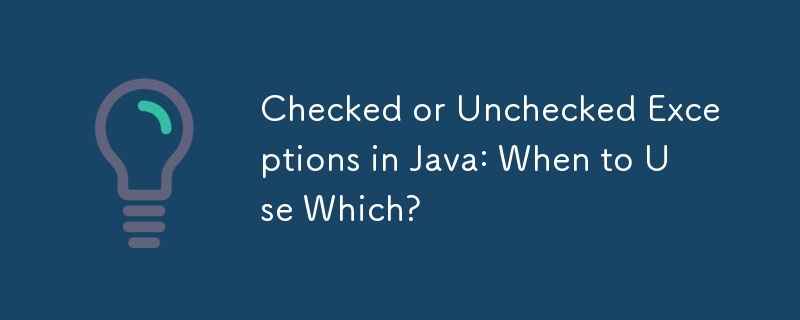

Choosing Between Checked and Unchecked Exceptions
In Java, exceptions are categorized as either checked or unchecked. The choice between these two types has significant implications for application design and error handling.
When to Choose Checked Exceptions
Checked exceptions require the caller to handle them explicitly using either try-catch blocks or throwing declarations. They are typically used for errors that are predictable but unpreventable and reasonable for the caller to recover from.
Examples of scenarios where checked exceptions are appropriate include:
When to Choose Unchecked Exceptions
Unchecked exceptions do not require explicit handling and are typically used for errors that are considered unrecoverable or that do not have a reasonable solution within the current context.
Examples of situations where unchecked exceptions are used include:
Additional Considerations
By carefully considering the above factors, developers can determine the appropriate exception type to use for specific situations, ensuring better error handling and application robustness.
The above is the detailed content of Checked or Unchecked Exceptions in Java: When to Use Which?. For more information, please follow other related articles on the PHP Chinese website!




